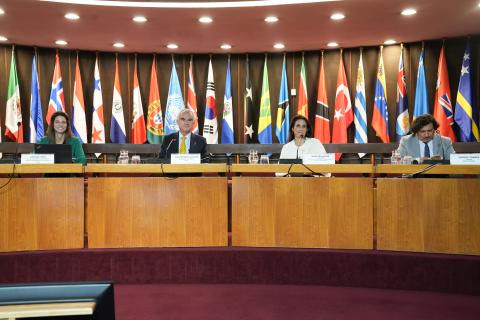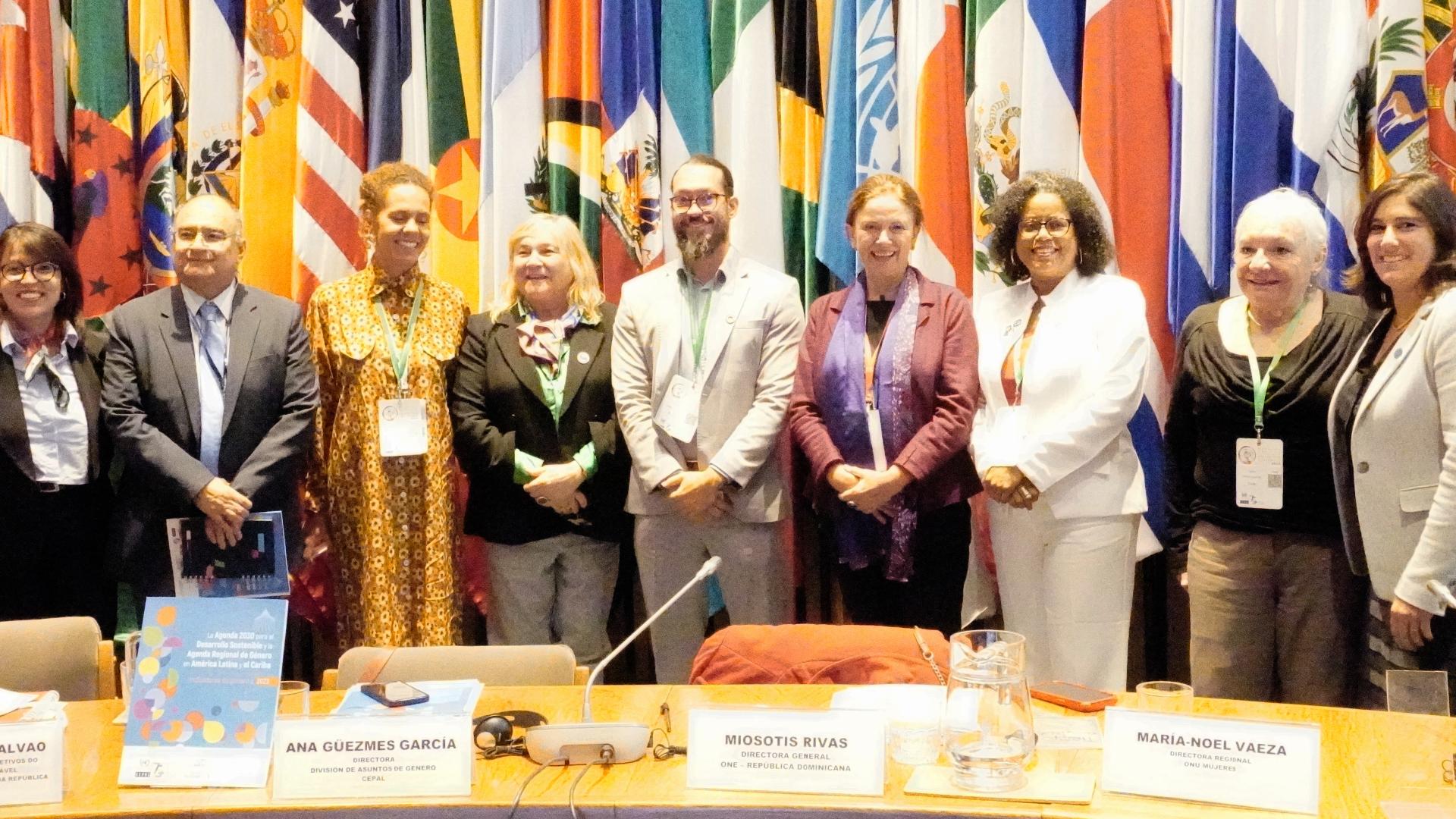Press Release
Over the last decade, Latin American and Caribbean countries have benefited from dynamic growth with significant progress in the social sphere, which is reflected in decreasing levels of poverty, extreme poverty and inequality. Most societies in the region have placed the need for greater equality, within a rights-based approach which should be guaranteed by the State, as a priority on their social development agenda.
These positive trends have been the result of a combination of factors: a favorable external context; more sound macro-economic policies; improved conditions in the job market, supported by enhanced labor and training policies; increased and sustained social spending and innovative social initiatives led by governments, particularly with the expansion of Conditional Cash Transfer (CCT) programmes.
As a result, a significant share of the region's population has been lifted out of poverty and has benefited from improved access to a more diversified basket of private consumption goods "within their households". Such movement is extremely positive and has been defined by various institutions and observers as the emergence of a "new Latin American middle-class". Although this is true to a certain extent, ECLAC has emphasized a few cautionary observations to avoid an overly-optimistic analysis in this respect.
In the first place, a relevant portion of this population lies just above the poverty line and is still highly vulnerable to falling back into poverty as a consequence of an external shock; take for instance a rise in food or energy prices. Additionally, unlike private consumption, the access of this population to high-quality public goods and services "outside of their households" in key areas such as education, health, citizen security, public transportation, etc., has not improved.
As a matter of fact, some of the social unrest witnessed over the last two years in different countries of the region has, in part, been a strong call by this segment of the population to bring to the attention of public authorities the new demands and expectations for improved access to quality goods and services, which has not been fulfilled.
There is still a sharp divide in most countries of the region between quality goods and services provided by private providers to the wealthiest sectors of society versus provision of low quality public goods and services to lower income and vulnerable sectors.
To address this shortcoming, reduce the trans-generational cycle of poverty and exclusion and to deal with the most pressing development issues that affect all societies of the region, ECLAC considers that a new equation between State, Market and Civil Society is required, in which public and private actors are called to increasingly collaborate through innovative partnerships. Latin America has significant assets in this respect.
A second generation of social and labor market policies, that go beyond CCTs should be devised, policies that redesign education and training systems through new forms of collaboration between different levels of government, the private sector, civil society organizations and local communities, which may all benefit from sharing their respective skills, capacities and visions.
It is well known that the region lags behind industrialized countries and other developing regions in terms of productive innovation, but it has become one of the most dynamic in the promotion of social innovation initiatives. Public, private and civil society actors have significantly changed over the last decade and innovative approaches have already started to emerge thanks to this dynamism.
Some of the governments of the region have already actively engaged in new forms of policy-making and collaboration with other partners of society. With local communities among the most innovative actors in addressing their own social challenges and may prove to be very relevant sources of new ideas for governments and the private sector.
Parts of the private sector are also evolving quickly, becoming concerned by and involved in social and sustainable development issues and devising new strategies, business models and forms of adding value in these areas. The academic sector is also a fundamental player as a provider of new ideas, research and platforms to facilitate collaboration among these actors. Finally, other actors and initiatives have soared, such as philanthropic foundations and social entrepreneurs, who are incipiently, but dramatically, changing the way in which these issues are addressed.
The combination of specific skills and knowledge of these different actors is a powerful driver in the generation of the next policies and measures to tackle social and sustainable development challenges. Governments of the region should provide incentives, enabling environments and new spaces for building trust, long-term common visions and innovative collaborations among all these actors, taking advantage of the unique capacities and dynamism of each, as new forms of contributing to reduce the traditional and emerging gaps that hamper social and sustainable development.


